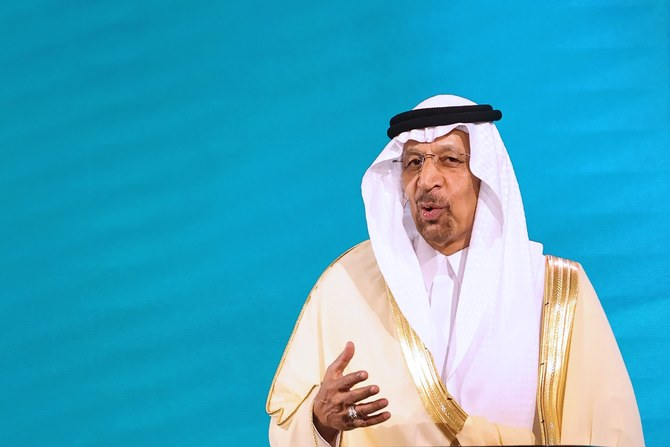MONTEVIDEO, Uruguay: Saudi Investment Minister Khalid Al-Falih led a 60-member delegation that took part in an investment forum in Uruguay’s capital Montevideo on Thursday.
It was the third high-level Saudi visit in 18 months, including one in May by Foreign Affairs Minister Adel Al-Jubeir.
Uruguayan authorities and business leaders are confident that the country can serve as Saudi Arabia’s point of entry for South America.
“Uruguay offers economic, legal and social stability for companies looking to do business and invest here,” Alfredo Ferrari, investment manager of the country’s promotion agency Uruguay XXI, told Arab News on the sidelines of the forum.
Ammar M. Altaf, assistant deputy of services sectors in the Saudi Investment Ministry, stressed the similarities between Uruguay and the Kingdom.
“We believe there’s complementarity. Uruguay has competitive sectors and offers an opening for investment opportunities,” said Altaf, spokesperson for the delegation that included representatives of the agriculture, real estate, sports and technology sectors. “It’s not surprising to see the opportunities here given the economic and policy indicators.”
Uruguay, a country of just 3.5 million people sandwiched between giants Argentina and Brazil, is promoting investment options in a number of areas, with emphasis on agribusiness and renewable energy, and its capacity to be a new breadbasket for the Middle East and North Africa.
Lisandro Bril, head of Oikos Innovation Capital, said: “Saudi Arabia and Uruguay are creating a new roadmap for development and investment. When you make a connection you create a vision, but when you invest you’re setting the stage for the future.”
He added that Saudi Arabia understands the importance of Uruguay for food security, and that the latter not only has land and ranks high in agriculture productivity, but also guarantees stability for production and logistics chains.
The issue of food security, while always a critical topic, has gained even more attention because of the double whammy of the COVID-19 pandemic and the Russia-Ukraine conflict.
A meeting of Asia-Pacific countries on Thursday in the US reported that 735 million people face hunger around the globe. That is 122 million more than prior to the pandemic in 2019.
“Uruguay is absolutely essential for the world’s food security, and if you consider the MENA region, we’re talking about a population topping more than 300 million people this decade,” said Bril.
Despite its size, Uruguay is the world’s ninth-largest exporter of rice, according to the US Department of Agriculture. It is the 17th-largest beef-producing country and the fourth-largest dairy exporter.
Susana Pecoy, Uruguay’s national director of industry, said the country has the capacity to produce enough food to feed 50 million people.
Ferrari said Uruguay has “a strong agribusiness chain in place, from the farm to manufacturing. We’re competitive, and products are traceable throughout the chain.”
While beef is certainly among Uruguay’s list of potential products, dairy could be the game-changer of the country’s trade relations with Saudi Arabia.
Pablo Coll, general manager of Granja Pocha-La Colonial, hopes the country’s stability and his products will be a winning combination for his company’s dairy. He was in Saudi Arabia in February, and is planning a second trip in September.
He met with contacts at the investment forum to talk about cheeses and dulce de leche, the caramelized milk dessert that is wildly popular throughout Latin America.
“I never imagined that Saudi Arabia would be an option for us, but it could be a reality soon. We’re hoping to start exports in the final quarter of this year,” said Coll.
His company was founded in the 1980s and began exporting in 2009. Its exports go to countries in South America and, most recently, Lebanon. Saudi Arabia would be its newest market.
The visit to Uruguay was not only about Saudi investment, but also looking to get Uruguayans and others in Latin America to think about investing in the Kingdom.
One area is sports. Naif Al-Dossary, an advisor in the Saudi Sports Ministry, said his sector is growing fast and would like international investment.
“We’re here to talk about investment. Saudi Arabia has a very young population and they love sports. We think there are opportunities,” he added.
According to the World Bank, 26 percent of the Saudi population is under the age of 15, and 71 percent between the ages of 15 and 64.
The Saudi delegation is visiting several Latin American countries. Though Uruguay will have to compete for Saudi investment, Ferrari is not concerned, saying his country “offers stability and location. We’re a gateway.”
Source : ARABNEWS

